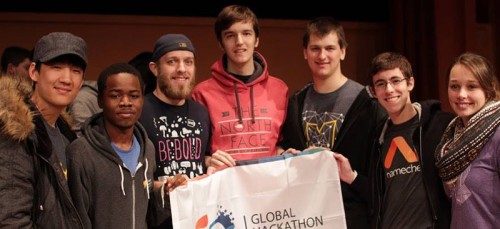
A team of students from DePaul University joined forces last weekend to hack together a means of transmitting Internet over FM radio at the University of Michigan MHacks competition.
DePaul students Peter Szczepanski and Matt Kula, both seniors, along with team members Stefan Aleksic and Raphael Rouvinov from Mundelein High School, and Esperat Hounyo from Rochester Institute of Technology, placed second for their hack called DataWave. One of the largest student-run hackathons, the University of Michigan-hosted competition consisted of 273 teams from all over the country, with more than 1,200 students in attendance.
“To me its just a gathering of people who are, one, very motivated, and two enjoy creating things,” Kula said. “These are all the people who will be working at Facebook and Google. It’s a great way for these extremely smart people to meet each other and learn from each other.”
A hackathon is an event where teams build products or applications that have usability in a very short amount of time. MHacks specifically gives student teams 36 hours to create their project. The main rule is that students can’t work on their project before the event.
“I like innovation, and hackathons are keeping innovation alive. It allows people to develop new skills, learn, meet new people, teach them and have fun,” Szczepanski said.
The idea for DataWave came to Aleksic when he was in the car with his sister going to Chipotle. He saw the radio B96 logo on the screen in his car and he wondered how the radio could send that logo out.
“I knew it had to be some kind of data, so I wondered if I could do the same thing,” Aleksic said. “But instead of a logo on the screen in a car, [I wondered] if we could send out the Internet on radio waves.”
The team’s hack project has positive social implications. The ability to transmit Internet over the radio means enabling Internet access to parts of the world that otherwise might struggle to get access.
Aleksic’s idea to use FM radio waves involved plugging an FM radio into a cell phone’s headphone jack, and plugging a different FM radio into a laptop. The user could download the Internet on the device with internet access, like the laptop, and send it over to the device without Internet access, like the cell phone.
While hackathons centered on students’ projects, students also use the events for activities ranging from snowball fights and Super Smash Bros tournaments to networking with top companies sponsoring the competition. Some of the sponsors at MHacks included Microsoft, Google, LinkedIn, Dropbox and Yo.
Although Szczepanski and Kula had already accepted full-time job offers prior to MHacks, Kula met his current employer after placing in the top 10 at an MIT hackathon. His team had won Facebook’s sponsor prize, which landed him an interview at the company, and eventually a summer internship.
He will be returning to Facebook in California this summer as a full-time Software Engineer.
Though the hackathons last only a few days, their impact can be lasting.
“I’ve heard people frequently say that after the hackathon they will continue to develop their projects and see it become something bigger,” Szczepanski said.
Though Szczepanski hadn’t paid any attention to the prizes until moments before receiving them, the team members all received free Oculus Rift virtual reality headsets and a trip to a global hackathon in Seoul, South Korea this summer..
“I heard the (global) hackathon will have 1 gigabit per second Internet, so that’s awesome,” Szczepanski said.
“To put that in perspective, DePaul’s Wi-Fi is 60 megabits per second,” Szczepanski said after running a test on his computer to check the speed of the Wi-Fi.
“So basically we will be getting 16 times the speed of DePaul’s Internet,”Szczepanski said.
Unfortunately, popular perception of hackathons is sometimes misinformed. It’s worth noting that the type of hacking going on at hackathons has nothing to do with breaking through cyber-security and doing something illegal.
“Some people have been stopped at TSA checkpoints, and one girl I know had her laptop searched because she had a hackathon sticker on it,” Aleksic said.
Canadian teams are even told not to mention the hackathon when crossing the border to the U.S., so as not to give the border patrol agents the wrong idea. Instead, they refer to it as a programming competition.
“There are two types of hacking. One is where you just want to make something cool, hack something together,” Aleksic said. “Then there’s Hollywood hacking, which is like the issue with North Korea.”
“Hackathons are not going into other people’s computers and stealing. It’s just where you go and make stuff,” Aleksic said.



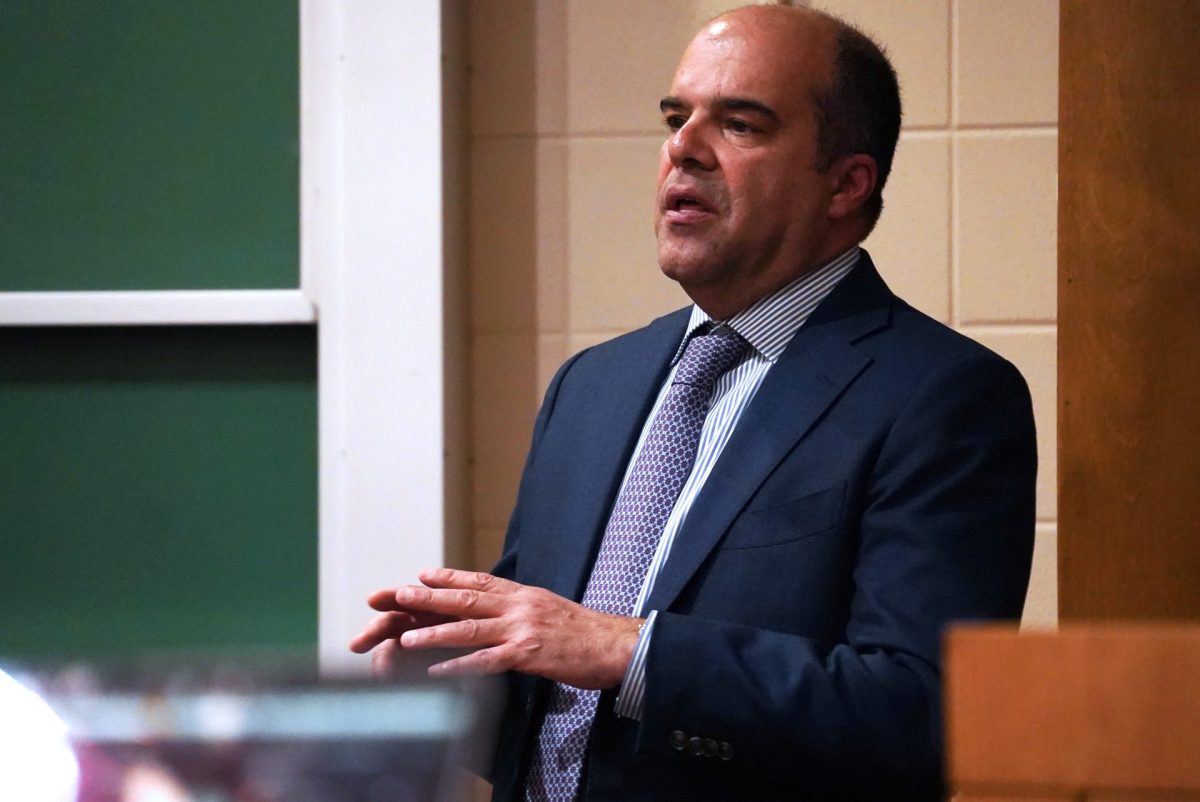


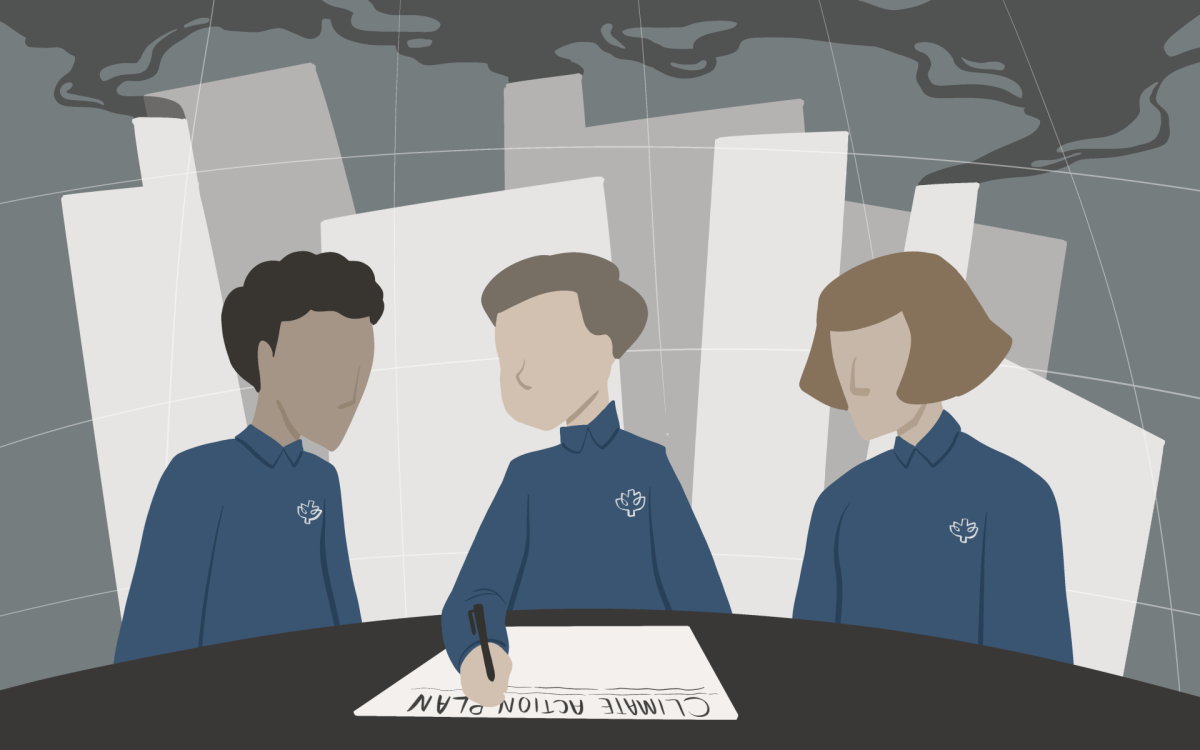
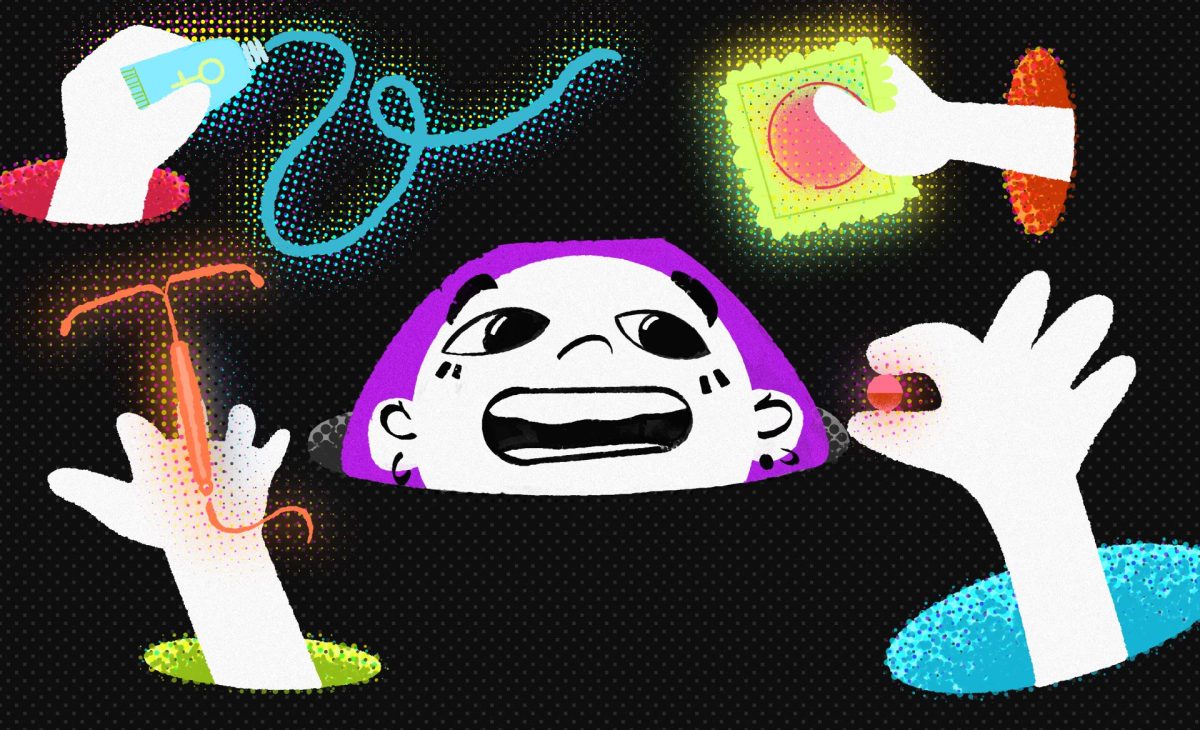
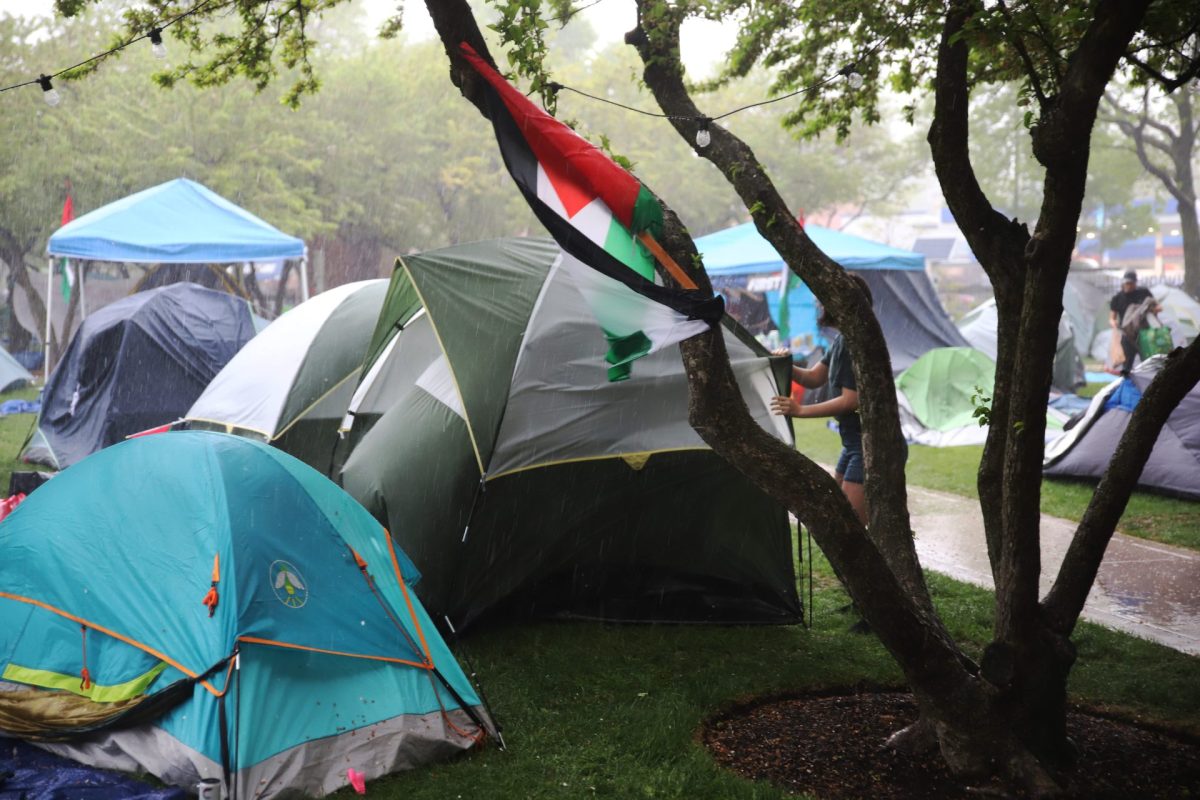
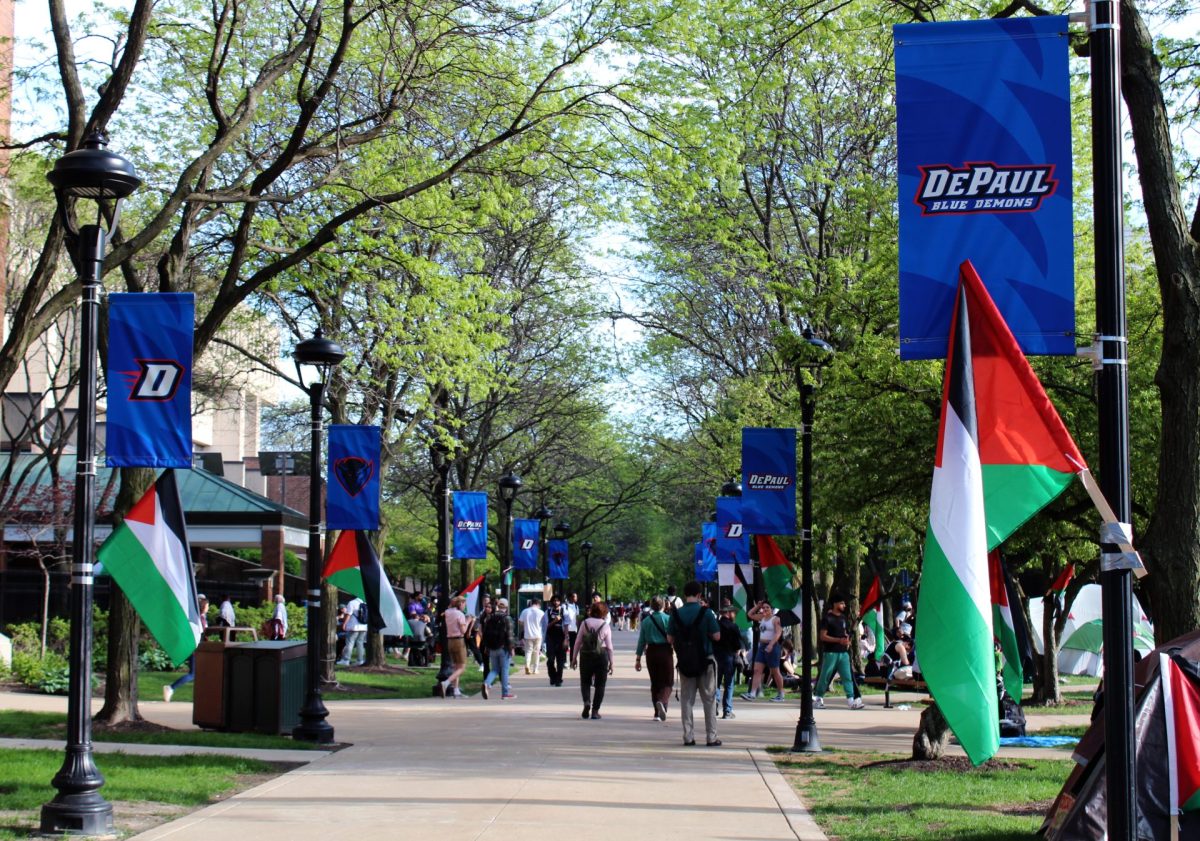
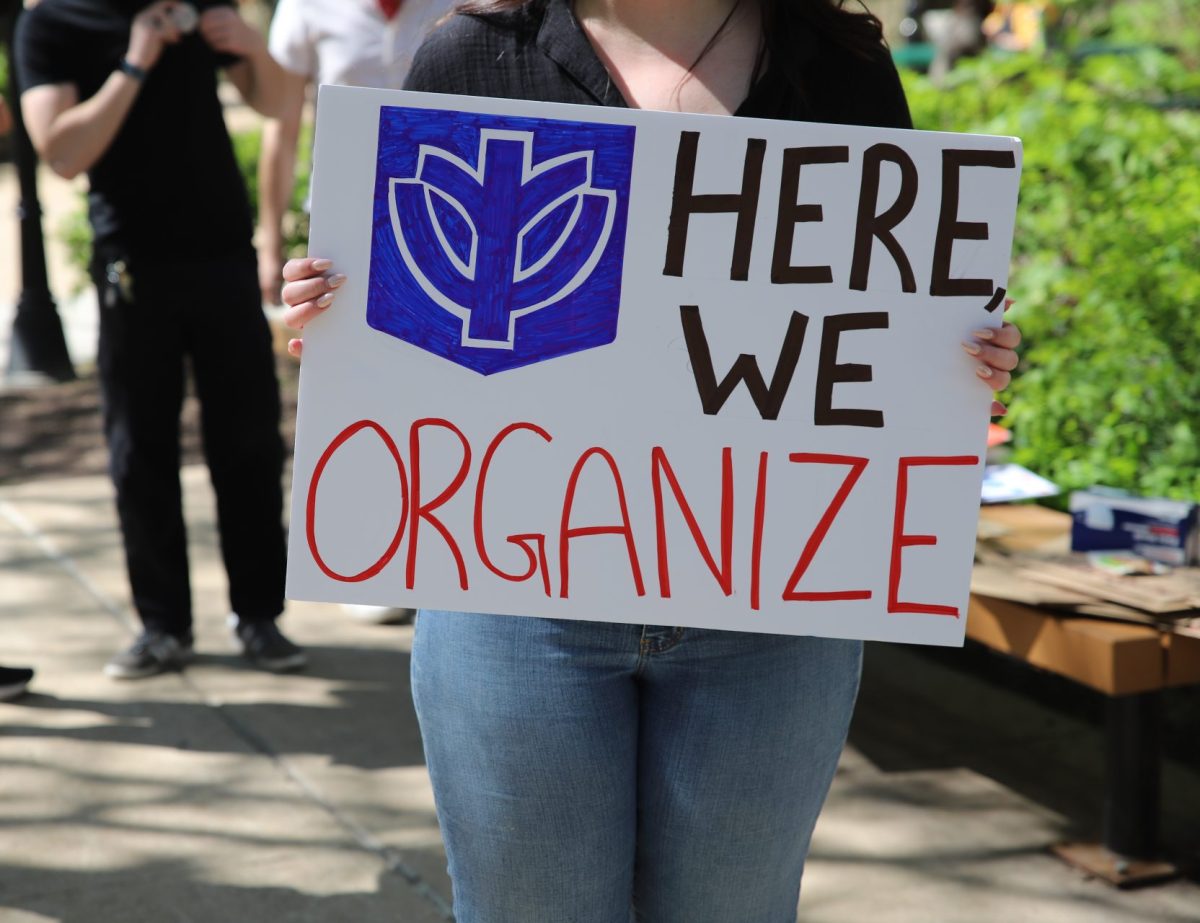
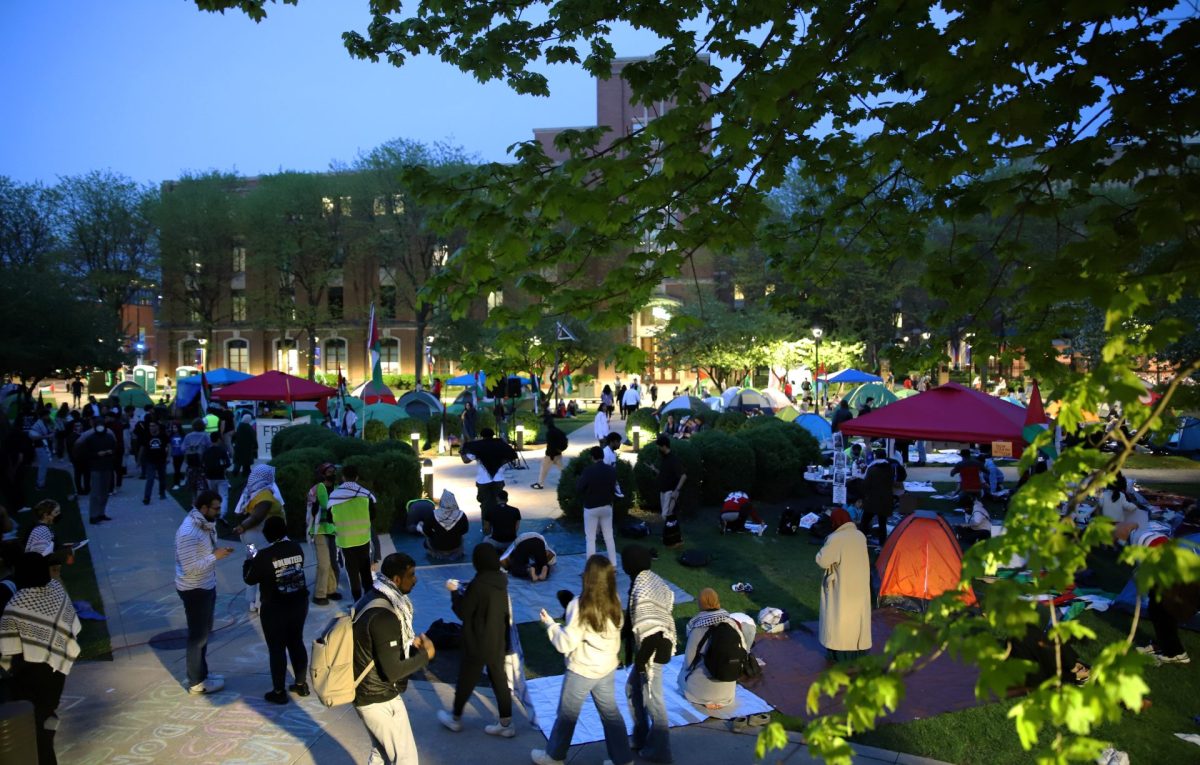
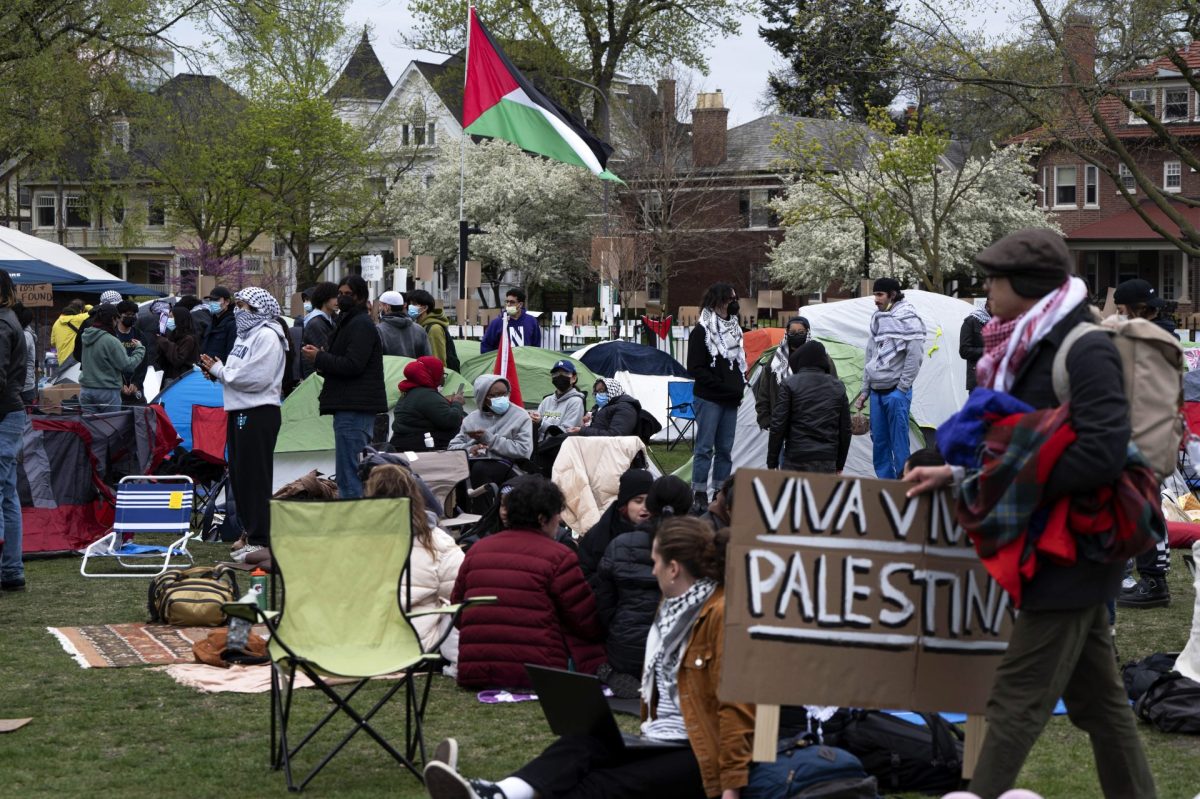
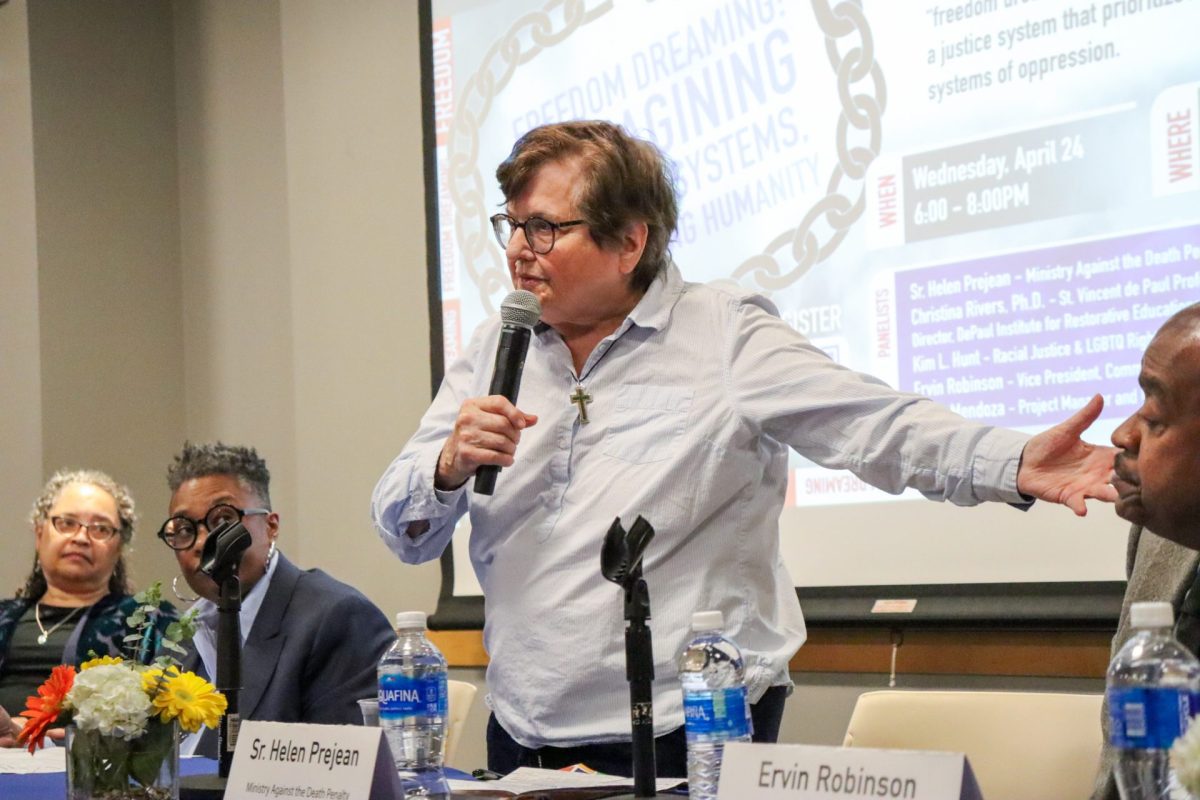
Www.Wifiward.com • May 30, 2015 at 12:47 am
Fabulous writing, keep up the great work.